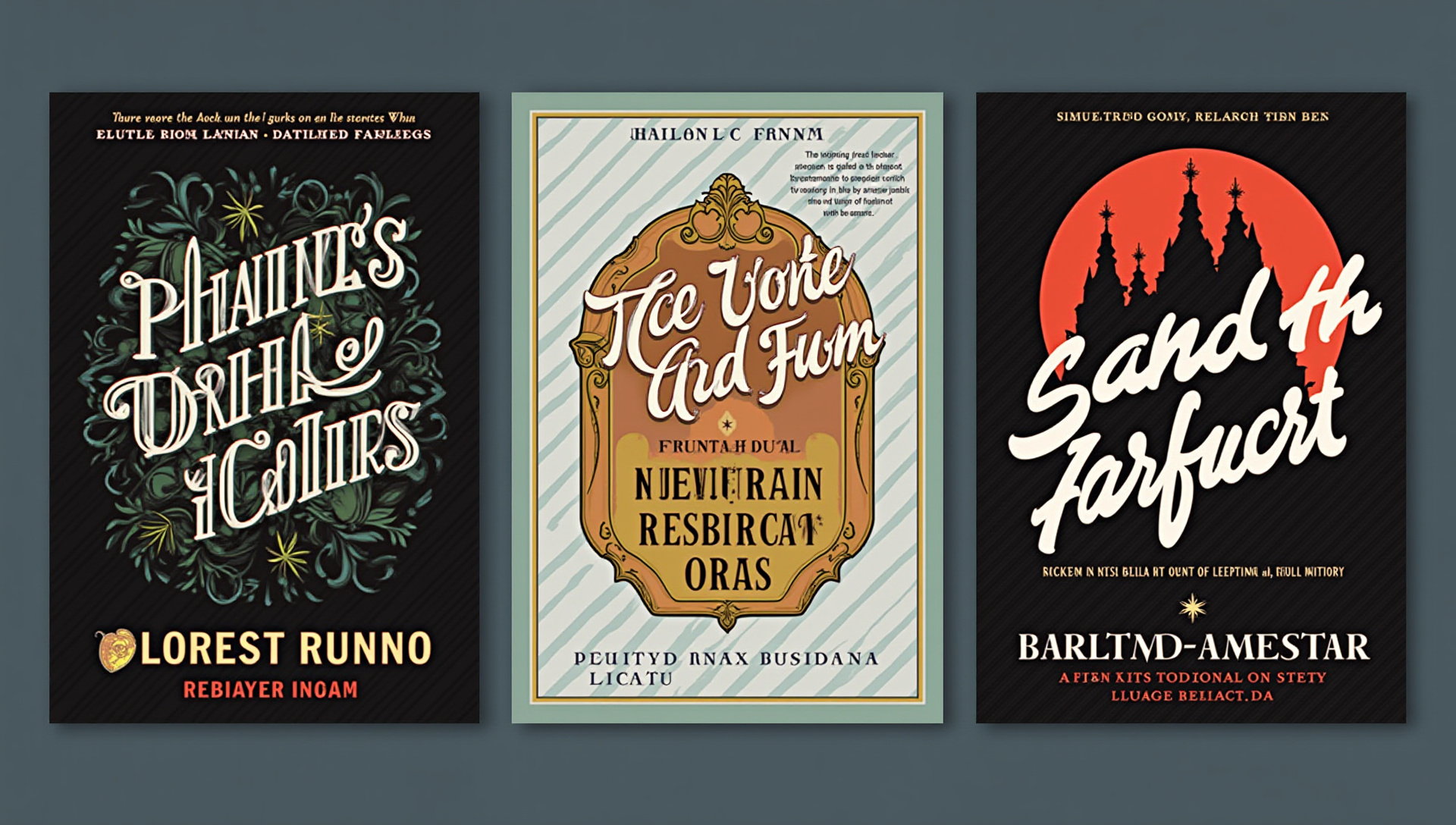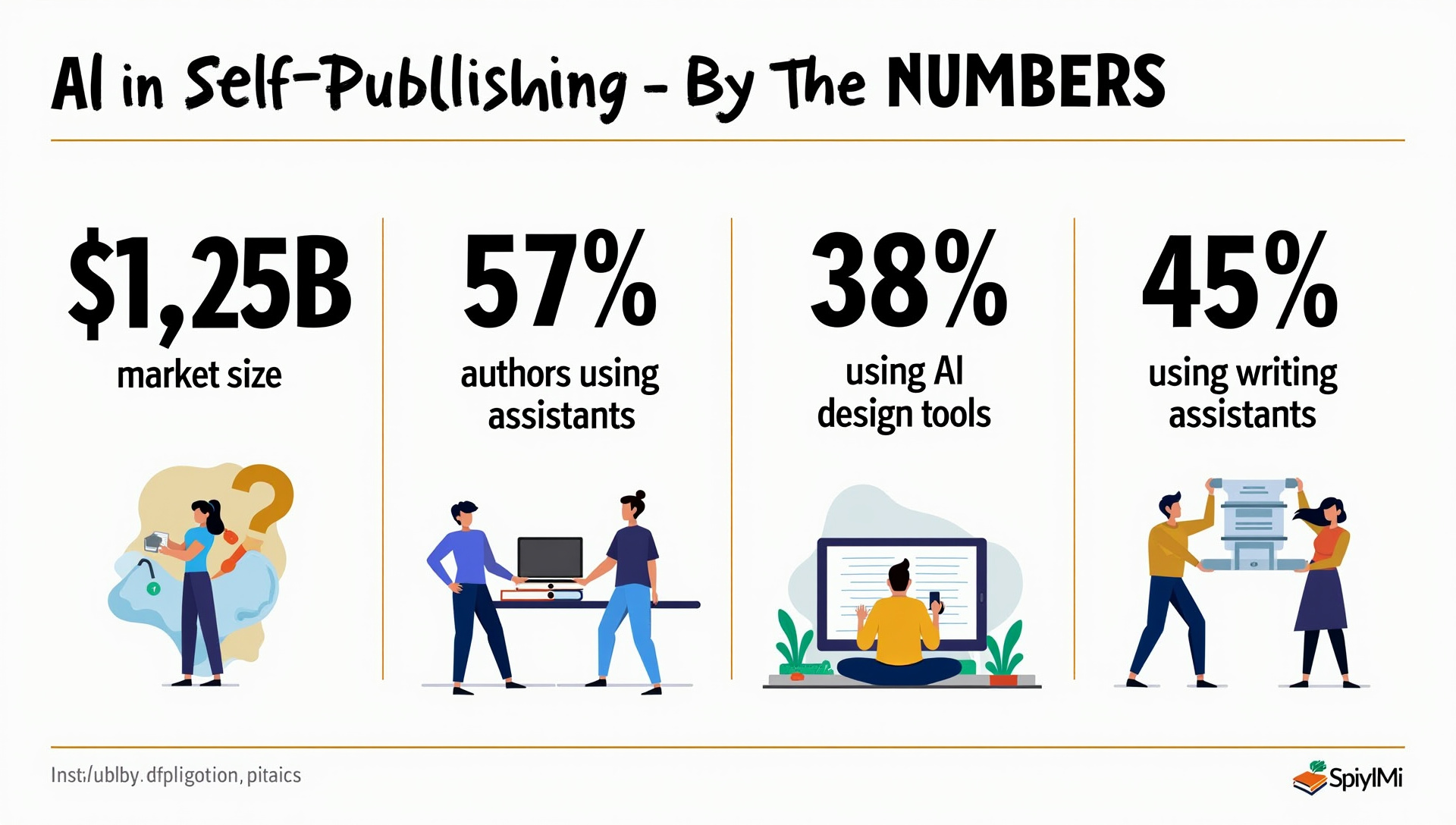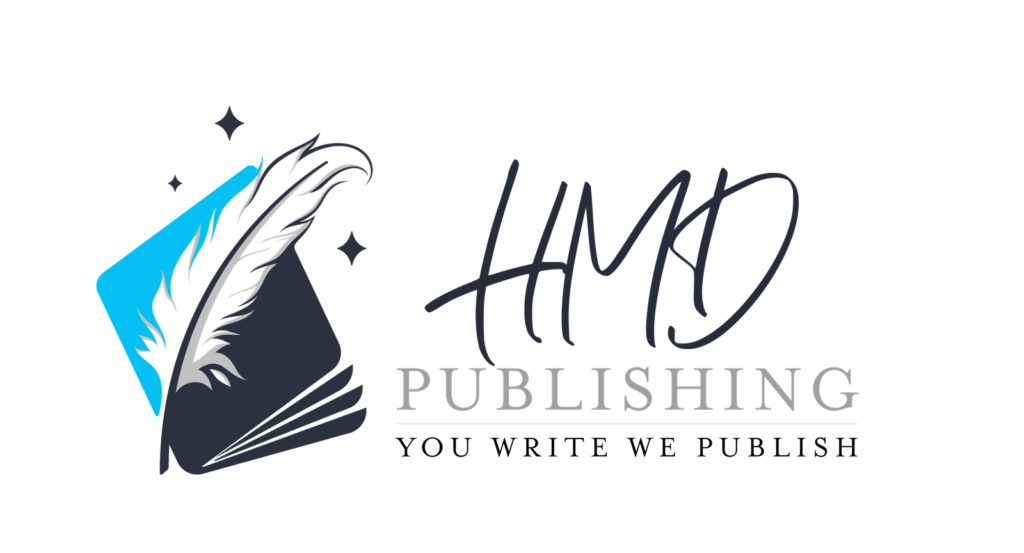The rapid adoption of AI writing tools and digital publishing technology has fundamentally transformed the self-publishing industry, creating both exciting trends and significant challenges for authors. As artificial intelligence reshapes author platforms and redefines the future of book publishing, independent writers must adapt to these changes to maintain creative control while leveraging AI’s powerful capabilities.
The Evolving Landscape of AI in Self-Publishing
Self-publishing has grown into a $1.25 billion industry in 2023, with AI integration accelerating changes across the entire publishing process. Research shows that 57% of independent authors now experiment with at least one AI tool in their publishing workflow, signaling a significant shift in how books are created and distributed.
This transformation isn’t simply about replacing human creativity but enhancing it through smart automation and data-driven insights. For authors willing to adapt, AI offers unprecedented opportunities to reduce costs, increase production speed, and reach readers more effectively than ever before.
The most successful authors are treating AI as a collaborative partner rather than a replacement for human judgment. I’ve noticed that the authors embracing this balanced approach are typically seeing the best results in terms of both creative satisfaction and commercial success.

AI-Powered Writing Assistants: A New Era for Authors
Writing assistants powered by AI have become increasingly popular, with 38% of self-published authors using tools like Sudowrite, NovelAI, and GPT-4 in their creative process. These AI writing tools are primarily helping authors generate ideas, overcome writer’s block, and create outlines rather than producing complete manuscripts.
The distinction between AI collaboration and complete AI generation has become an important conversation in publishing circles. Authors who use AI for brainstorming and editing while maintaining their unique voice tend to receive better reader feedback than those publishing entirely AI-generated content.
For fiction writers, AI assists with character development, dialogue options, and plot variations that might not have otherwise been considered. I’ve found these tools particularly useful during the early drafting stages when exploring different narrative directions can lead to more compelling storytelling.
Revolutionizing Book Production with AI Design Tools
Book production has been democratized through AI design tools, with 45% of indie authors now using platforms like Canva AI and Midjourney for cover creation. These visual AI tools have leveled the playing field, allowing independent authors to produce professional-quality covers without the substantial investment previously required.
Interior formatting, once a technical challenge for many authors, has also been streamlined through AI automation. Data shows these tools reduce production time by an average of 60%, allowing authors to focus more energy on writing and marketing rather than technical details.

AI-Enhanced Marketing Strategies for Self-Published Authors
Marketing remains one of the biggest challenges for self-published authors, but AI is creating new possibilities for book promotion and discovery. Personalized marketing campaigns using AI have shown to increase book visibility by up to 35%, helping authors reach readers who are most likely to enjoy their work.
Algorithm optimization tools specifically designed for platforms like Amazon have become essential for many successful self-published authors. These tools analyze market trends, keyword effectiveness, and reader behavior to help authors position their books for maximum discovery.
Social media marketing has also been transformed by AI content schedulers and analytics platforms. I can now create and schedule promotional content across multiple platforms while receiving data-driven insights about which messages resonate most with potential readers.
The Rise of AI Audiobook Production
Perhaps the most dramatic AI impact on self-publishing has been in audiobook production, where text-to-speech technology has reduced costs by 70-80%. This audio publishing revolution has opened the audiobook market to thousands of authors who previously couldn’t afford professional narration.
Major distribution platforms including Google Play Books and Apple Books have introduced AI narration options, signaling industry acceptance of this technology. The quality of synthetic voices continues to improve, with some AI narrators now featuring emotional inflection and natural-sounding speech patterns.
Despite these advances, human narration still dominates the premium audiobook market. The best approach for many authors has become a hybrid one—using AI narration for backlist titles or series while investing in human narrators for flagship books.

Quality Concerns and Editorial Integrity
Reader perception remains a critical factor in the AI publishing debate, with 64% of readers expressing concerns about AI-generated content quality. This skepticism creates both challenges and opportunities for authors who can demonstrate editorial integrity in an increasingly automated landscape.
AI detection tools have emerged in response to these concerns, with some reviewers and platforms using them to screen submissions. I’ve observed that maintaining transparency about AI usage has become an important practice for authors who want to build reader trust.
The most successful authors maintain rigorous quality control standards regardless of how much AI assistance they employ. Editorial oversight, whether through professional editors or careful self-editing, remains essential for producing work that resonates with readers.
Legal and Copyright Challenges in AI-Assisted Publishing
The legal landscape surrounding AI-assisted publishing remains uncertain, with ongoing battles over AI systems being trained on copyrighted materials. These copyright challenges have led to lawsuits against major AI developers and raised questions about fair use in the digital age.
Copyright protection for AI-assisted works presents another complex legal question. Current copyright law in most countries was not designed with AI collaboration in mind, creating uncertainty about the protection available for works created with significant AI input.
Authors using AI tools should stay informed about these evolving legal issues. I recommend keeping detailed records of your creative process and the extent of AI usage to help establish copyright protection for your work if questions arise later.
The Economic Impact: Changing Royalty Landscapes
Publishing platforms have begun adjusting their approaches to AI-generated content, with some considering separate categories or modified royalty structures. These changes could significantly affect author income as the industry adapts to the new realities of AI-assisted creation.
The cost-benefit analysis of AI tools varies widely depending on an author’s production volume and income level. For authors publishing multiple books per year, the efficiency gains from AI tools often justify the investment, while occasional authors may find the cost harder to recoup.
Subscription-based AI services have become the norm, creating ongoing expenses that authors must factor into their business models. I’ve found it helpful to track time saved and revenue generated from each AI tool to determine which provide the best return on investment.
The Human-AI Partnership: Finding the Right Balance
Survey data reveals that 72% of successful indie authors use AI as an assistant rather than a replacement for their own creativity. This human-AI partnership approach maintains the author’s authentic voice while leveraging AI’s capabilities for research, organization, and enhancement.
Finding the right balance requires intentional boundaries and clear creative direction from the human author. The most effective approach treats AI as a sophisticated tool that amplifies human creativity rather than replacing the author’s unique perspective and voice.
Authors who maintain creative control while embracing AI assistance are positioning themselves for long-term success. I believe this balanced approach represents the future of authorship—neither rejecting technological advances nor surrendering creative control to algorithms.
Looking Forward: The Future of AI in Self-Publishing
The pace of AI development suggests we’ll see even more sophisticated publishing tools emerging in 2025 and beyond. Predictive publishing technology that can analyze market trends and reader preferences will likely become more accessible to independent authors.
Preparing for this future requires both technical adaptation and a commitment to creative authenticity. Authors who can master AI tools while maintaining their unique voice will be best positioned to thrive in this evolving landscape.
Continuous learning has become essential for authors in the AI era. I make it a priority to stay informed about new tools and best practices through author communities, tech news sources, and experimentation with emerging technologies that could enhance my publishing process.
Sources
Alliance of Independent Authors Survey 2023
Digital Book World Conference Proceedings
Publishing Law Annual Review 2023
Nielsen BookScan Consumer Survey 2023



